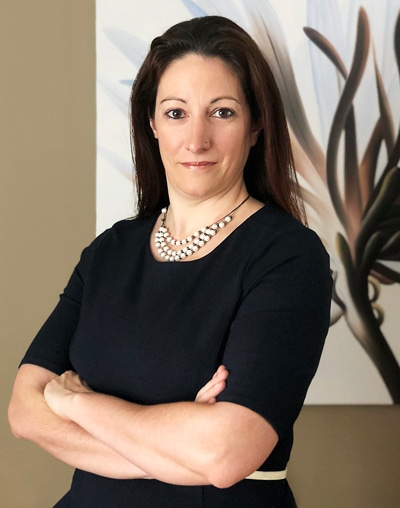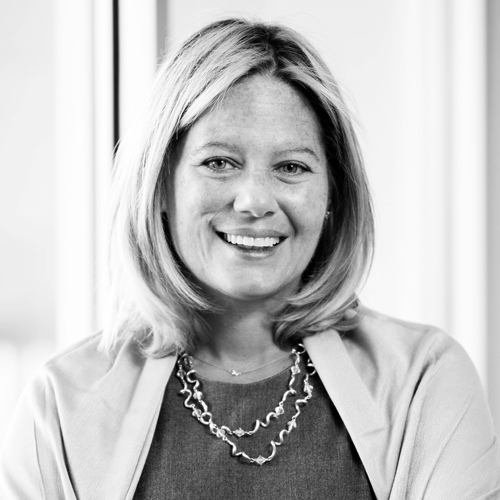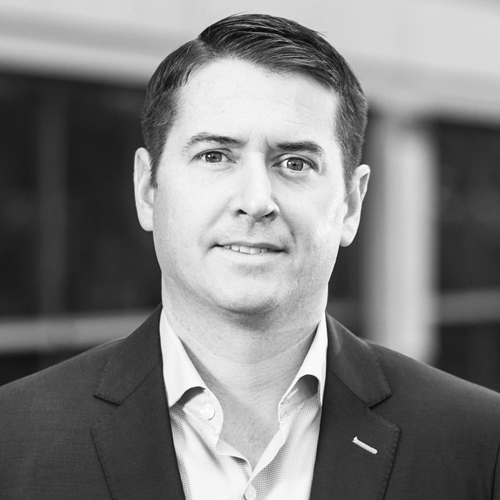
In 2013, Carrie Parikh was a senior associate at DLA Piper, a global litigation firm, when a headhunter called with a career-changing opportunity. Beazley, an insurance company, was seeking a new claims manager for its privacy and cybersecurity department, and though Parikh had no experience in the field, she embraced the challenge. “I was thrown into it and had to learn everything as if I were a first-year student in law school learning the law all over again,” Parikh says.
That opportunity set the stage for more learning three years later, in a position in-house at the global hospitality company Wyndham Hotel Group. Three weeks after applying, Parikh joined as senior legal counsel, then became head of the privacy and data security legal group shortly thereafter. Now, she’s vice president of legal, and she’s helping Wyndham Hotel Group spin off from Wyndham Worldwide into its own publicly traded company.
Here, Parikh explains how her quick climb up the corporate ladder has stemmed from her willingness to approach new challenges head-on, and she reveals some of the lessons she has learned along the way.
Very early in your time with Wyndham, you became head of the privacy and data security legal group. How did you advance so quickly?
I was here for about six weeks when the current privacy lead was promoted to a different division of the company. I fully expected that someone with significantly more traditional privacy experience would be slotted in above me, but my general counsel at the time knocked on my door. He essentially said, “How would you like to run the privacy program?” I took a deep breath, and I said, “I’m up for the challenge.” A few months after that, my general counsel came back to me and said, “Congratulations, you’ve done an excellent job bringing up the privacy program, you’ve been innovative, creative, constructive—we’d like to promote you to VP. You’re now officially running the show.”
What were the keys to adjusting to the change quickly?
Being confident and comfortable enough to say, “I don’t know, but I will figure it out,” and taking the time to learn before providing any response. In-house, we move very quickly, and “I don’t know” and “I need time to figure it out” are usually not expected. But folks here were very supportive of me taking on this role, and I relied on their support. Being passionate about it was also really helpful. I would come in every day, excited that I was going to be confronted with an area of law that was new to me. It makes every day a challenge, and challenge is a great igniter for success.
And now you have this additional challenge of the spin-off from Wyndham Worldwide. How have you been involved with it?
In the summer of 2017, Wyndham Worldwide announced that Wyndham Hotel Group was going to be spinning off into its own publicly traded company. With anything like an M&A deal or a spin, your first consideration is “What does that mean for me personally?” But instead of trying to focus on it from that perspective, I decided to raise my hand and say, “If you need someone in the legal department to work on this, regardless of what my personal employment situation will be at the end, pick me.”
What are the biggest challenges you’ve faced in facilitating the spin?
The biggest lesson I’ve learned is that there is a huge people element. Typically, when you’re an in-house counsel or a corporate lawyer, you’re not dealing with a human aspect to your job, but every decision that we make on a daily basis regarding spin impacts a person’s job. I think as in-house counsel, you’re insulated a lot from those decisions until something like this happens and you realize there are greater things at play than whether or not the company makes money. It’s how the company treats its people that is truly important.
Are there other lessons you learned from this experience that you think will be useful in your career going forward?
When all these different areas of law were being foisted on me, I had concerns that I was losing focus, and that focus was what was important. What I’ve learned from this experience is that yes, you have to have that solid foundation, you have to have that significant deep knowledge base, but you have to be willing to flex and stretch, particularly if you’re going to take on an in-house role.
What would be your advice to a lawyer who wants to expand their knowledge base?
If someone comes and offers you an opportunity, your first response should not be “I don’t think I can. I’m not sure I’m ready.” The answer should always be “Yes, I’ll give it a shot, and I will give it my absolute best.” Because you never know what the opportunity after that is going to be.
That sounds like a very proactive way to move your career forward.
This has been an interesting trajectory for me in general. I grew up in upstate New York, in a very small farm town. My parents died when I was young, and through sheer will, I got my butt to college and from there to law school. There are a lot of little kids out there who are struggling right now, and I want them to know that there’s a way to the top.
Photo by Rajiv Parikh
Venable LLP:
“Carrie is pragmatic and great at finding creative solutions to challenging legal and business issues. She is particularly well versed in privacy and data security matters. We are proud to have her as a client.”
—William Russell, Partner


